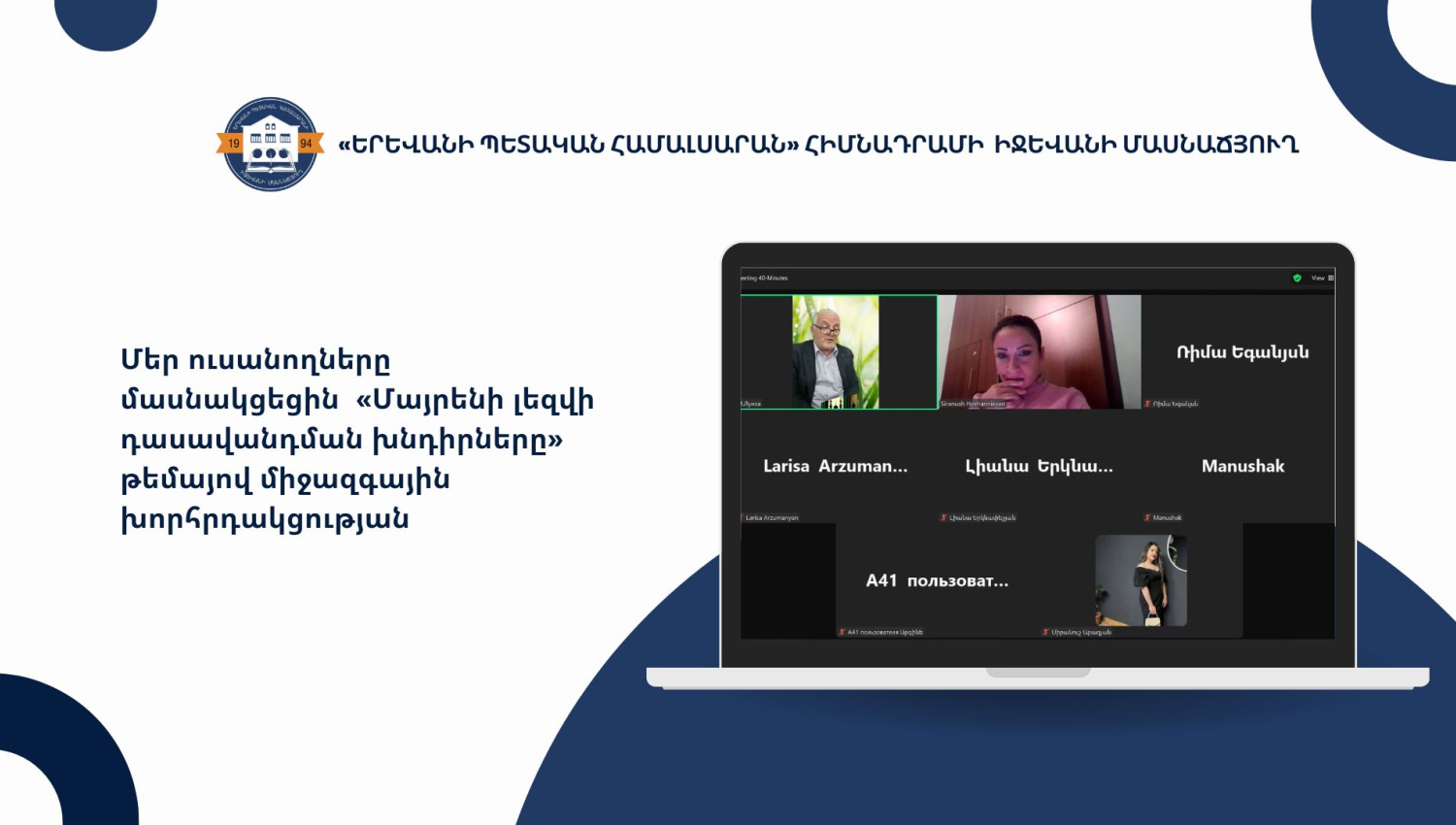During the consultation, issues of the functionality of languages with a small coverage in the environment of dominant languages were discussed. In particular, the problems arising during the implementation of basic education in the relevant languages, the positive and negative aspects of artificial intelligence in the preservation of languages, the importance of modern technologies in terms of the preservation of natural languages were considered. The national experience of various branches and manifestations of the Armenian language in order to cleanse it of foreign languages and improve the quality of the language and the opportunities for exchanging this experience were discussed.
Special attention was paid to the issue of preservation and development of the national languages of national minorities in Armenia, on the basis of which a parallel was drawn with the situation and status of the languages of various national units in Russia.
The Armenian side participating in the consultation raised questions about natural language programming. In particular, it was presented that the digitization of languages can be a serious incentive for languages that have problems with their survival. Russian specialists expressed concern that in the age of modern technologies, when the main flow of information occurs predominantly in foreign languages, the native language of subordinate national units appears in a weak position. The Armenian representatives participating in the consultation responded to this concern from the position of professional advice, assuring that the enrichment and accessibility of the information database in these languages can contribute not only to the preservation of the language, but also to the increase in the functions of the given language. Thus, the Armenian expert attached importance to the preservation of languages not only by the status of the language as a state language, but also by the self-awareness of the social unit that bears the given language, its own linguistic responsibility and its own readiness to realize the importance of preserving it The course taken by the Armenian language and its normalization, especially after independence from the Soviet Union, were discussed, as well as the steps currently being taken to preserve the Armenian language in the Armenian Diaspora. The expert emphasized the importance of organizing education in the dominant, native, state language of a given state, since the development and vital activity of the state are primarily and naturally regulated by that language. At the same time, subordinate languages can self-organize in parallel with this process, using the opportunities provided by modern high technologies, thus preserving their own quality and integrity.
